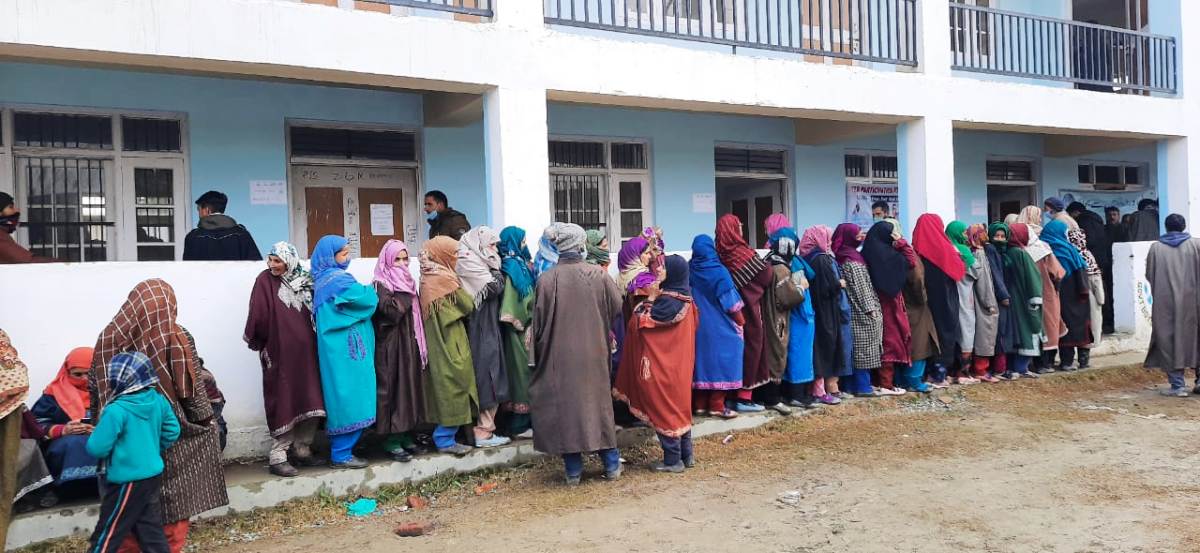SRINAGAR: Persons Who Inject Drugs (PWIDs) are at risk of having unwanted health problems that affect their body as well as their overall health, doctors said.
A senior psychiatrist working in the Department of Psychiatry, IMHANS, GMC Srinagar, told the news agency KNO that Intravenous (IV) drug use not only causes bruising, scarring, and venous injury, but its users are also at risk of infectious diseases like human immunodeficiency virus (HIV), tuberculosis (TB), and hepatitis C virus (HCV).
“IV drug users may develop scarring in places where they inject the drugs into their skin. ‘Track marks’ develop when a person repeatedly injects into the same site. As a result, the overlaying skin can become discolored, and the most common sites are the arm, knee joint, groin, and the veins on top of their feet,” he said, adding that intravenous drug use can lead to dependency, both physical and psychological, developing more quickly than with other methods of using drugs.
Some of the immediate, short-term health risks associated with injecting drugs intravenously, intramuscularly, or subcutaneously include inflamed or collapsed veins, puncture marks or track lines, skin infections, including abscesses and necrotizing fasciitis, bacteria on the cardiac valves, endocarditis, and other cardiovascular infections, swelling of the feet, ankles, and legs due to poor blood flow, he added.
“People who use drugs intravenously for an extended period of time are at risk of developing a multitude of health problems associated with continued and persistent use,” the psychiatrist said.
He said each drug has its own set of associated long-term health risks. Some examples of potential consequences include AIDS (as a result of HIV), malnourishment, severe weight loss, sexual dysfunction, cardiovascular disease, heart failure, stroke, seizures, convulsions, death due to overdose, increased risk of suicide, chronic hepatitis that leads to liver cancer or cirrhosis, and the decay of white matter in the brain, negatively impacting behavioral regulation and decision-making.
Meanwhile, another doctor working at a drug de-addiction center told KNO that the use of drugs, mainly heroin, is leading to a scary increase in Hepatitis C cases in J&K, as around three out of four drug users are Hepatitis C positive in Kashmir.
“We screen every patient for Hepatitis C, Hepatitis B, and HIV, and as per hospital-based studies, around 72 percent of drug users are tested positive for Hepatitis C,” he said, adding that the use of drugs via injection is quite common among drug users, and the most common cause of Hepatitis C among them is the sharing of needles.
“We have witnessed around 72 percent of the substance users have Hepatitis C, and it is a chronic disease. If not treated on time, it can lead to chronic liver disease, for which the patient needs costly antiviral medications for 3-6 months, becoming another burden on the family members of drug users,” he added.
The doctors working with such patients said that sharing of needles used for injecting drugs is known to transmit diseases among the drug users, which adds to the suffering of those affected and their families.
Without treatment, Hepatitis C can prove fatal, and for most patients, it is a symptom-free disease that spreads silently to other family members, and sometimes it can get transmitted to babies from an infected mother, they said.
As per the doctors, needle-sharing among drug users is the main cause of Hepatitis C in Kashmir, and almost every three out of four drug users suffer from Hepatitis C. There remain chances of them getting infected with other infections like HIV and TB as well, they said. (KNO)















